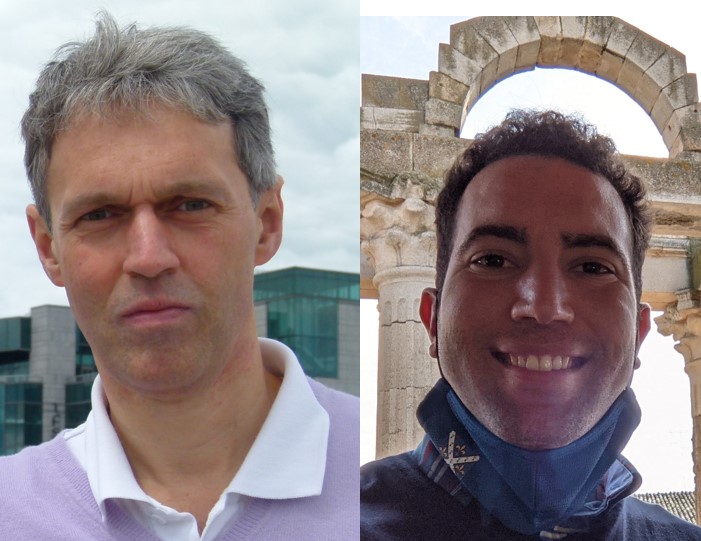St Hugh’s Fellow and DPhil student achieve simultaneous publications

St Hugh’s Tutor and Fellow in Archaeology, Professor Peter Mitchell and his DPhil Student, Gonzalo Linares Matas (Archaeology,2019) have had their papers published this month in the same journal: World Archaeology (Vol 52(2).
Peter said, ‘It’s an unusual achievement for both a Fellow and a graduate student to have their papers published simultaneously in the same publication. I am delighted see Gonzalo’s work recognised by such an important journal, which is testament to the hard work and brightness of St Hugh’s graduate community. My paper, which was co-written with former St Hugh’s graduate and Junior Dean, Samuel Lunn-Rockliffe, derives from my forthcoming book on the archaeology of African islands that will be published by Routledge in April 2022.’
Below are abstracts from both papers:
‘We hunt to share’: social dynamics and very large mammal butchery during the Oldowan–Acheulean transition
Gonzalo J. Linares Matás and José Yravedra
The Early Pleistocene (2.58–0.78 Ma) was a period of major evolutionary changes in the hominin lineage. The progressive consolidation of bipedal locomotion, alongside increases in cranial capacity and behavioural flexibility, allowed early Homo to exploit an increasing diversity of resources and environmental settings within the changing landscapes of East Africa and beyond. These complex processes were not necessarily linear or spatially uniform, given the technological diversity documented, particularly during the Oldowan–Acheulean transition. In this paper, we argue that human populations experienced a considerable demographic expansion from c.1.7–1.5 Ma onwards, expressed in the number, size, density, and distribution of archaeological sites. These patterns resulted from the interplay of high-yielding animal resource exploitation strategies, technological investment, prosocial behaviours as well as increasingly structured land use patterns. A more consolidated hominin demographic structure led to the extinction of large sympatric carnivore species, while larger group sizes would have led to more successful Out-of-Africa dispersals.
Here be dragons: the untapped archaeological potential of São Tomé and Príncipe
Peter Mitchell and Samuel Lunn-Rockliffe
Africa has thus far contributed little to debates in the field of island archaeology. This paper explores the potential of São Tomé and Príncipe, a small island state in the Gulf of Guinea that may be the only country in the world where no archaeological fieldwork has yet been undertaken. This contrasts sharply with its importance as a focal point in the development of plantation economies based on unfree labour, campaigns of resistance to these, the transfer of crops between the Old and New Worlds, and the emergence of new, creolized societies, as well as with its enmeshment in systems of international trade and exploitation foundational to global capitalism. This paper discusses the contributions that archaeological research in the archipelago could make to these and other themes, including the environmental impacts of human settlement, and identifies parallels with work on islands in the Caribbean and the Indian Ocean.
